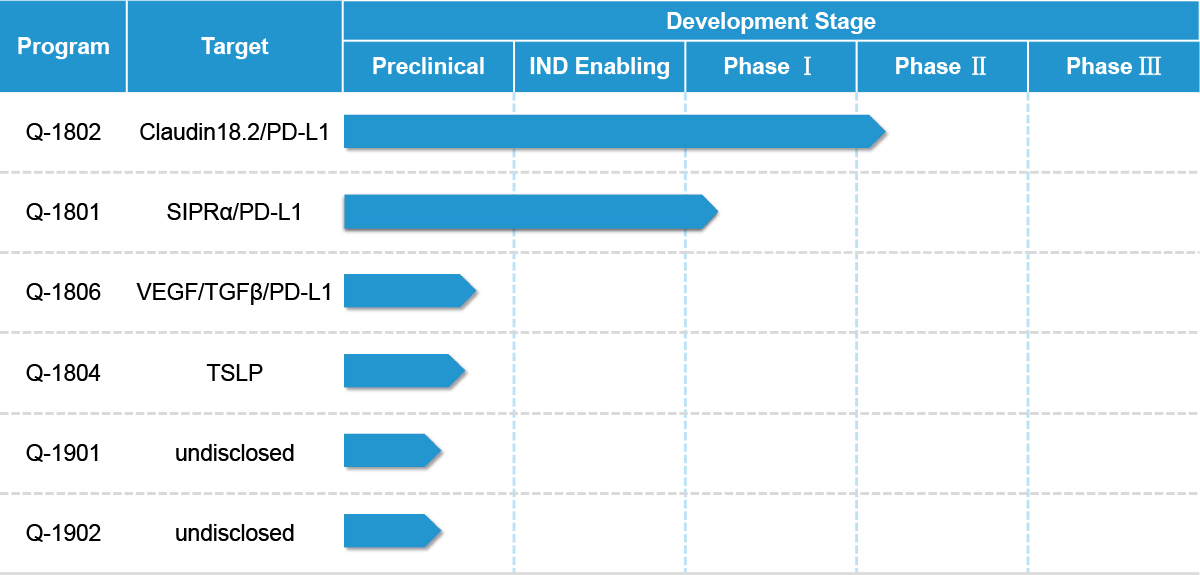 Current position: HOME - SCIENCE - PRODUCT PIPELINETECHNOLOGY PLATFORMPRODUCT PIPELINE
Current position: HOME - SCIENCE - PRODUCT PIPELINETECHNOLOGY PLATFORMPRODUCT PIPELINE
Qure Bio's drug development status:
About Q-1802
Q-1802, a bispecific antibody drug targeting tumor-specific antigen claudin 18.2 and immune checkpoint PD-L1, was designed and developed by Qure Bio with complete intellectual property rights. Q-1802 was approved by FDA and NMPA for clinical trials respectively. It was the first bispecific antibody targeting claudin 18.2 and PD-L1 in the world that entered the clinical stage.
Claudin 18.2 is a membrane protein with multiple transmembrane regions. Its expression in a variety of solid tumors such as gastric cancer and pancreatic cancer makes it a promising tumor treatment target. Currently, therapies including monoclonal antibodies, bispecific antibodies, ADC and CAR-T are in the clinical development stage.
About Q-1801
Qure’s Q-1801 targets SIRPα. By blocking CD47-SIRPα signal, it activates macrophages to enhance the phagocytosis of tumor cells and the antigen presentation ability of DC cells.CD47-SIRPα pathway-related antibodies have the potential to become another broad-spectrum anti-tumor drug after PD-1/PD-L1. They may become a beneficial supplement to PD-1/PD-L1, and their broad-spectrum may exceed PD-1/PD-L1, the market may surpass PD-1/PD-L1 pathway antibodies. It is planned to apply for clinical application by the end of 2021.
SIRPα is a typical inhibitory immune receptor in the SIRP family, which can be selectively expressed on the surface of myeloid cells and nerve cell membranes. SIRPα can bind to its ligand CD47 to generate a "don't eat me" signal and prevent macrophages from engulfing tumor cells.
About Q-1804
Q-1804 is a new TSLP antibody with independent intellectual property rights. TSLP can balance the body's natural immunity and adaptive immunity by acting on myeloid and lymphoid cells, and plays an important role in initiating and promoting Th2 cell-mediated allergic inflammation.TSLP is overexpressed in some autoimmune diseases and inflammatory diseases/disorders, such as atopic dermatitis, food allergy, allergic rhinitis, Netherton syndrome, and asthma.It indicates the important role of this cytokine in the pathogenesis of these allergic inflammatory diseases.




 ABOUT
ABOUT
 021-61622561(AM9:00-PM18:00)
021-61622561(AM9:00-PM18:00)